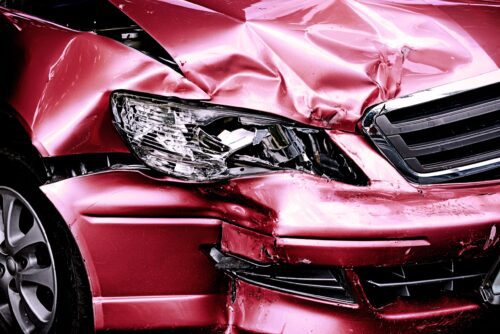Been in a car accident? This article provides 5 essential steps to take right away, from seeking medical attention to protecting yourself from insurance adjusters. Learn how to safeguard your rights and your health.

Unfortunately, auto accidents remain all too common in the Bay Area and throughout the state of California. Indeed, according to data collected and published by the California Highway Patrol (CHP), 223,128 people were hurt in crashes in the year 2013 alone.
Under California law, car accident victims may hold the at-fault party liable for the full extent of their damages. However, unfortunately, many victims are unable to do this because they make critical (and avoidable) mistakes immediately following their accident.
To protect your legal rights, as well as your health, our experienced San Jose auto accident lawyers have put together a quick five-step guide on what to do after a car accident.
5 Important Steps You Should Take After a Car Accident
1. Seek Medical Assistance
The most important thing to do after you’ve been in an accident is to get appropriate medical care. This is a critically important step to protect your health and safety. Certainly, if you need emergency medical attention, you need to get to the hospital immediately.
Though, even if you think that you are not seriously injured, you still to get yourself to a doctor for an exam. Many common motor vehicle accident injuries occur with a delayed onset. For example, it often takes 24 to 48 hours to feel the full impact of whiplash or a concussion. It can take even longer for a back injury to fully emerge.
Are there legal issues, sure, and I’m going to address them. But if you’re bleeding or if you have a concussion or you’re dizzy, or worse, obviously you want to worry about your health and getting your health taken care of before you worry about the legal issues.
Further, if you do not seek professional medical attention, you will almost certainly not be able to bring a viable personal injury claim. To support a personal injury claim in California, you will need official medical documentation that proves the existence of, and extent of, your injuries.
2. Exchange Contact and Insurance Information
Under California Department of Motor Vehicles (DMV) regulations, all drivers are required to exchange contact, vehicle and insurance information after a crash. If a police officer is on the scene, the officer should help to ensure that this happens.
Though, you should still be sure to take proactive steps to ensure that information is exchanged. If there is no police office at your automobile accident, make sure that you get the license plate of the other vehicle and ideally the driver’s license and any important other information.
3. Gather and Secure Evidence
Beyond getting contact and insurance information from the other parties, you should also make efforts to gather and secure any other forms of relevant evidence. If you aren’t injured too badly, you should take the names, business cards, and contact information of all the witnesses around the accident to help with legal issues shortly.
Policemen tend to hurry the witness interviewing process and might talk to one witness but miss three or four. Additionally, you should try to take extensive photographs of the vehicle damages as well as the scene of the crash. Should a dispute arise regarding your claim, these pictures will provide useful, compelling evidence.
4. Be Wary of Insurance Adjusters [Their goal is to settle the case quickly]
Soon after an accident, victims will typically be contacted by a representative from the insurance company or sometimes by insurance adjusters. When dealing with insurance adjusters, there is one important thing that all car accident victims need to know: The insurance company is not on your side. Ultimately, the company will be looking out for its interests, not your best interests. This means you need to remain very cautious when speaking to insurance company representatives. More specifically, please always keep the following four important tips in mind:
- Take your time: You do not need to speak to an insurance adjuster right after your accident. You are allowed time to recover and gather your thoughts.
- Do not admit fault: You should never admit fault, even if it’s only partial fault, for a crash. You are not in a position to judge who was at fault, let your attorney deal with that issue.
- Do not speculate: Never engage in speculation about your California car accident. Instead, you should say as little as possible to insurance adjusters. If you say anything, please be sure that you stick to straightforward facts. Speculation can lead to you unintentionally saying something that can be used against you.
- Do not accept the first settlement offer: Insurance settlements are complex negotiations. The insurance company is unlikely to start with its best offer. Even if the insurance adjuster tells you that they are ‘not authorized’ to go higher, do not relent.
5. Contact a Qualified Attorney
Finally, the single best thing you can do to protect yourself after a crash is to contact an experienced car accident attorney. Your attorney will be able to comprehensively review the individual circumstances of your case and will be able to determine exactly what steps you need to take to protect your rights and interests.
At GJEL Accident Attorneys, we have helped many injured victims obtain full and fair compensation for their accident damages. If you or a loved one has been hurt in a crash in the Bay Area, we can help. Please do not hesitate to get in touch with our team today to request your free initial legal consultation.
